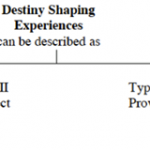 (Be blessed by this DWOD for June 07, 2014 by guest contributor Kenneth Copeland)
(Be blessed by this DWOD for June 07, 2014 by guest contributor Kenneth Copeland)
I can do all things through Christ who strengthens me. (Philippians 4:13)
You’re running the race set before you, moving full speed ahead with God’s blessing overtaking you at every step. Then suddenly, wham! You hit the wall. It may be a wall of sickness or financial trouble, of spiritual failure or family problems. But, regardless of the form it takes, the effect of “the wall” is always the same. It stops you cold.
The question is, once you hit a wall like that, what will you do? You’ll be tempted to quit, to turn back in defeat. But don’t do it. Because God will enable you to break through that wall and keep right on going.
I’m not going to tell you it’s easy. The truth is, it’s tough. But you have to push on through the tough times if you’re ever going to have a breakthrough.
Ask any athlete. He’ll tell you that! Because if he’s a winner, he’s been there. He’s pushed his body to what seems to be the maximum. His side has hurt. His lungs have ached. He’s had cramps in his legs and thighs. And just when he felt like he couldn’t go on, he’s heard some coach yell, “Come on! Move it!”
Athletes call that “hitting the wall.” It’s a time when the body says, “That’s it. That’s all I can do. I can’t go any further. I can’t go any faster. I quit.”
But the seasoned athlete knows that “the wall” isn’t the end. It’s a signal that he’s on the verge of a breakthrough. If he’ll toughen up and push himself a little more, he’ll get a second wind. Suddenly, he’ll go faster than before. He’ll reach a level of excellence he couldn’t have reached any other way.
When you feel the worst, when failure is breathing down your neck, press into the Word as never before. You may meditate on a particular scripture for days and even weeks sometimes, trying to get a revelation of it, seemingly without success.
Then suddenly, like the dawn of the morning, light will come pouring in. You’ll see the way to break through. All you have to do is punch one little hole in that wall of problems, dig one tiny hole in it with your faith and with the Word of God.
Then keep tearing away at that hole. Don’t quit! And, before long, the forces of God will come bursting through, demolishing every obstacle in their path!
Once that happens you’ll never be the same again. You’ll be hooked. It will only take one breakthrough like that to make a never-dying, never-quitting champion out of you.
(This post appeared first in “From Faith to Faith”, a daily guide to Victory. To subscribe to this daily devotional and access other great resources, please go to www.kcm.org)









Follow Us